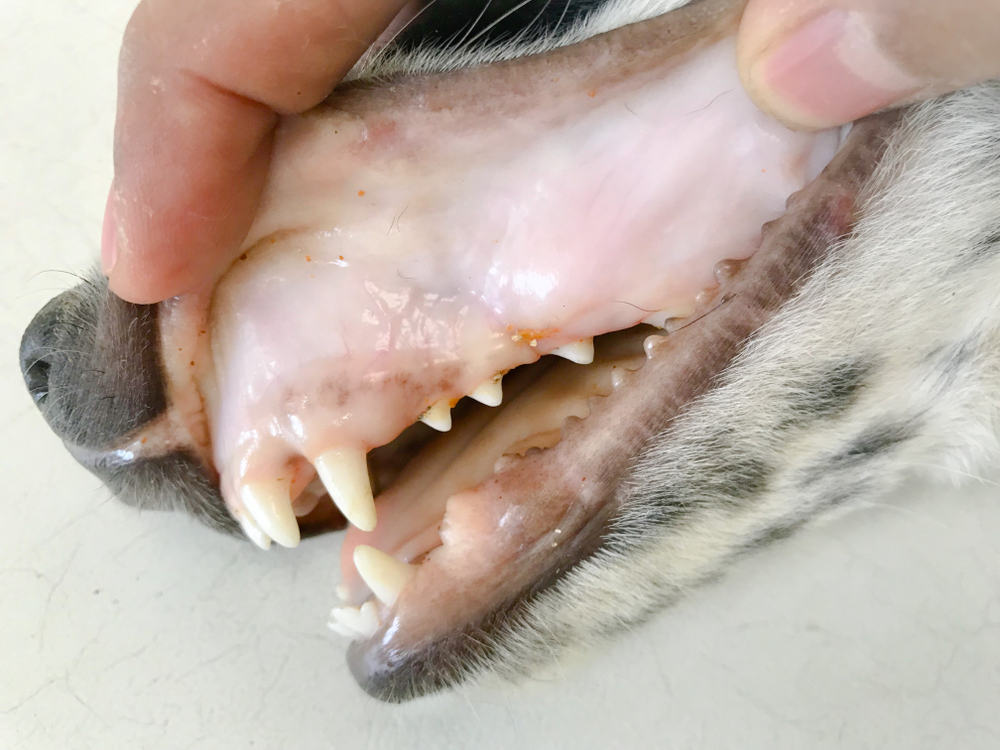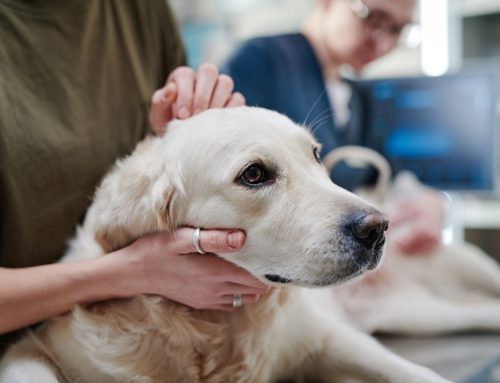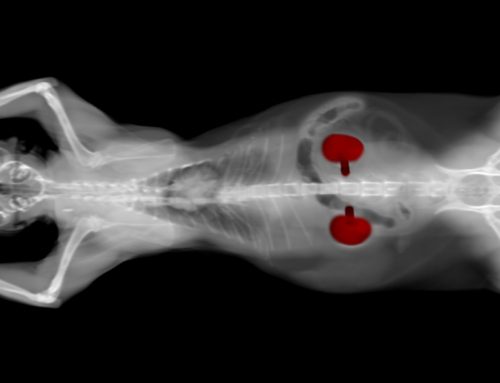Cancer—senior pets’ leading cause of death—is common, and approximately half of all dogs and cats are diagnosed with this disease during their lifetime. Suspecting your pet has cancer or receiving an affirmative diagnosis can feel devastating, but diagnostic testing advances enable your veterinarian to detect many cancers at their earliest—most treatable—stages. Our Star of Texas Veterinary Hospital team is here to help you learn to recognize your pet’s potential cancer signs, so we can diagnose their condition as soon as possible, and provide effective treatment.
#1: You feel lumps and bumps beneath your pet’s skin
A new growth beneath your pet’s skin may be a normal aging sign. However, an abnormal and rapidly developing lump can be a cancerous mass. Only through testing can your veterinarian determine whether your pet’s lump is malignant (i.e., cancerous). Feel your pet’s skin regularly (e.g., each month), and take note of any new lumps or bumps. If your pet’s lumps and bumps change suddenly, contact your veterinarian to determine whether they are malignant.
#2: Your pet’s wounds will not heal
If your pet has a wound that will not heal, cancer may have weakened their immune system, which interferes with their body’s healing ability. Some cancers themselves can also resemble a sore that will not heal.
#3: Your pet has unexplained weight loss
Unless you have reduced the amount you are feeding your pet, their weight should remain stable. If your pet is losing weight when not on a calorie-restricted diet, they may have cancer. Changes in your pet’s weight, accompanied by chronic vomiting or diarrhea, can indicate a stomach tumor. If your pet is having difficulty chewing and swallowing, they will likely eat less, which can indicate an oral tumor or a tumor in their esophagus, lungs, or stomach.
#4: Your pet’s breath or ears have a strange odor
While an unusual odor coming from your pet’s mouth or ears could indicate they need a dental exam or have an ear infection, cancer may also be the cause. Cancer cells growing along the lining of the mouth or nose can cause bad breath, and an ear tumor can block the ear canal, causing a secondary infection.
#5: Your pet has persistent respiratory issues
As cancerous masses grow, they can make your pet’s breathing difficult, which can lead to coughing, heavy panting while at rest, shallow breathing, or respiratory distress. If your pet has a dry, persistent cough and difficulty breathing, they may have lung cancer or a tumor near their heart.
#6: Your pet has a persistent limp
Limping and stiffness can be expected if your pet is recovering from an injury, but if these signs do not improve with rest and pain-relieving medication, they may indicate that your cat or dog has developed osteosarcoma (i.e., bone cancer), which can cause excruciating pain, making them reluctant to walk or exercise.
#7: Your pet is lethargic
Lethargy can be a signal that your pet’s body is expending a great deal of energy fighting a developing cancer. A pet with cancer may also sleep more than usual.
#8: Your pet’s elimination habits have changed
Changes in your pet’s urinary or bowel habits, such as frequent accidents or bloody urine or stool, are potential cancer signs. While straining to urinate and bloody urine usually indicate a common urinary tract infection, if antibiotics do not resolve the issues or they are recurrent, bladder cancer may be the underlying cause.
#9: Your pet has an abnormal discharge
Blood, pus, vomiting, diarrhea, or any other abnormal discharges are serious health issue signs, and may indicate your pet has cancer. Eye discharge or a sudden bloody nose can indicate eye and nasal cancers. An internal fluid accumulation may cause a visibly distended or bloated abdomen, which may signal uterine cancer in a female pet.
#10: Your pet has abnormally colored gums

A healthy pet’s mucous membranes—including their gums—should be pink. Pale gums can be a sign that cancer is reducing your pet’s red blood cell or oxygen levels, indicating bone marrow cancer.
If your pet shows any cancer signs, schedule an appointment with our Star of Texas Veterinary Hospital team. Our veterinary professionals will thoroughly examine your pet, perform diagnostic testing to identify their condition’s underlying cause, and recommend treatment that will provide the best health outcome for your companion.






